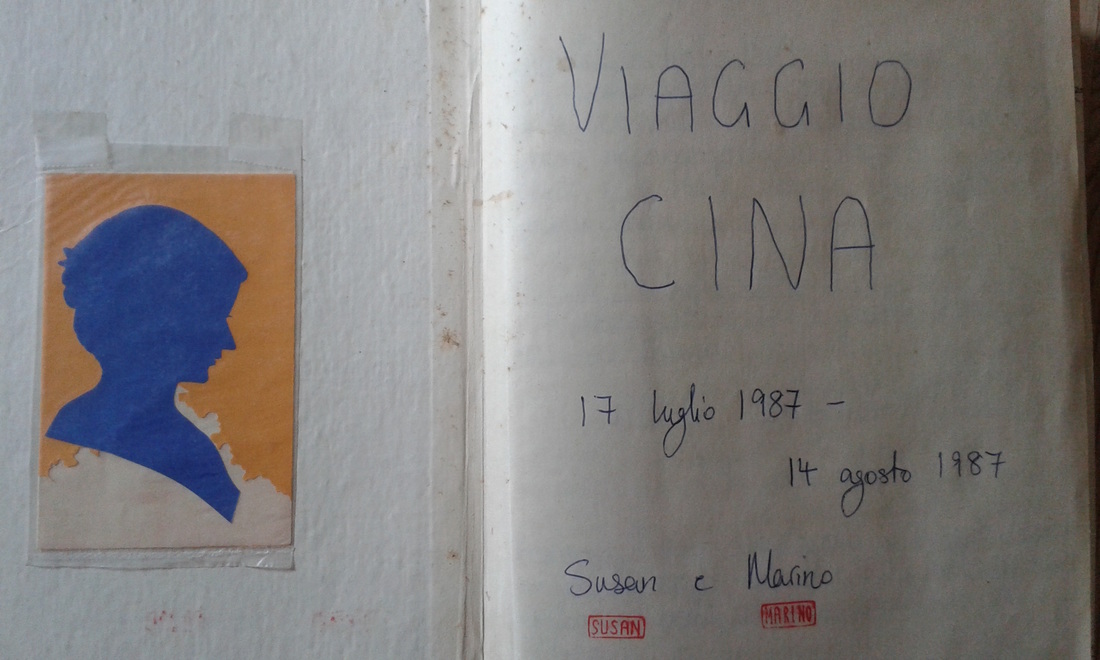|
Before having children all my free time was dedicated to globetrotting and I had started writing a book about my travels.
I have always found writing about my personal experiences easier than writing about an imaginary situation which I have never been through. I therefore usually encourage people to base their writing work on something familiar to them and then adapt it to the written assignment making changes where necessary and enriching with adjectives and our imagination. This third post regarding some of my adventures is not only to encourage students to do likewise, thus practising their writing, but to stimulate people into class discussion on the topics students have written about and shared. Many of those stories are outdated as times change, countries develop... Should anyone like to comment & let me know how things have changed since I visited these countries, it would be welcome feedback. A WEARY TRAVELLER'S TALES Tragicomic Episodes from a Globe-Trotter's Diary As a young, well-travelled globe-trotter, I prefer visiting countries in order to get to know the people, their customs and traditions, rather than only seeing the sights from an air-conditioned bus after having left an anonymous first-class hotel. On my travels I have come across many tragicomic episodes worth recounting, which are not only amusing in themselves but offer a great insight into the ways and being of different peoples in far off countries. The best way to appreciate other mentalities and ways of life is to try and integrate oneself with the people by travelling with local forms of transport, eating in local restaurants and sleeping in hotels where one can mix with the locals rather than with tourists. CHINA Part 1 (written in 1987): Whichever form of transport one chooses in China, it is always an adventure. Trains for the foreigner seem to be the most exciting. The communications system is extremely poor so that one can only make seat/couchette reservations at least six days in advance and only from the original station of departure. If you happen to be travelling through the country and stopping off to visit towns for less than six days, as was my case, you can forget trying to make a reservation. Reservations cannot be made when boarding at intermediate stations, since they have no way of knowing which seat/couchettes were booked from the original station of departure. The only hope is to try once on the train. One of our longest train journeys started in Xian, where one can see the famous terracotta army. We managed to book two 'hard seats' (the other class is 'soft seats') and they turned out to be as hard as ever, with very straight backrests. Actually, it was quite interesting to see that once seated, everyone took out a little towel and hung it on a hook above their seats. I later discovered this served to wipe down the continuous streams of sweat that are inevitable in the summer heat despite the numerous fans (which for some reason work when there is the breeze caused by the train speeding along, but do not work when the trains stop at the stations, so that the heat is even more stifling). The next ritual for each passenger was to put a tin cup with lid on the little table jutting out between the facing seats. Into these they added a few tea leaves. Moments after the train left an attendant passed by filling the cups with boiling water from a giant kettle, kept warm on a fire burning between carriages. Thus began our scheduled five hour night journey to Luoyang, where we were to visit the Longmen Caves. Not having found room in the couchettes, we spent the night sharing our two reserved 'hard seats' with another two Chinese who managed to squeeze in, one of whom fell asleep with his head nodding on my shoulder. Eight sleepless hours later we got off at our destination. Having spent the day visiting Luoyang's sights, we bought our onward journey tickets to Beijing. No kind of reservation at all, of course, since this was an intermediate stop and reservations could only be made at Xian. The train was due to leave at 7.30 p.m. but on showing our tickets, we were told that the train was twelve hours late! Considering that Xian is officially five hours journey away, this seemed to be quite a record! We decided to catch the next train which brought us to Zengzhou, on the junction with the Beijing line. Whether this was unacceptable because the Chinese only catch direct trains, or because our tickets were only valid for the direct train was never clear to us. However, amongst heavy protest from the station attendants we boarded the train. At 11.30 p.m. we were at Zengzhou. According to our interpretation of the all-Chinese timetable, the next train to Beijing left at midnight. We lined up to have our tickets amended. After much incomprehension, obviously because what we were doing was not usual, our tickets were updated and we were accompanied to the waiting room area reserved for those leaving on the 6.00 a.m. train. We therefore settled down to our second sleepless night, hoping to steal a few hours nap by resting against each other. Impossible! A uniformed guard walked through the waiting room every half hour and violently shook awake anyone even vaguely dozing. There may have been a "No Dozing!" sign on the wall, but to us illiterate in the Chinese language, it was certainly not apparent. The journey to Beijing was no more eventful than any other that has been spent sitting on a train floor for ten consecutive hours in sweltering heat. However, it was fascinating watching with what dexterity small children were able to manoeuvre their chopsticks whilst eating on a jolting train. Unfortunately the hygienic advantages of modern packaging meant that all polystyrene lunch boxes were automatically thrown from the window of the moving train, littering the still medieval looking Chinese countryside. Subsequent shorter train journeys acquainted us with interesting games that the Chinese love to play. But however clean we all were when we boarded, on arrival our clothes were all a grubby grey, not to mention the dirt under our finger nails. It was only after quite a few trips that we realised this filth was due to the fact that the trains are all run on coal, leaving a sooty trail. For someone born in the electric/diesel train era, this was quite a revelation. * * * CHINA to be continued .... next episode coming soon! Have you ever had any tragi-comic experiences? Susan
0 Comments
Leave a Reply. |
Categories
All
Would you like regular English learning & teaching ideas? Subscribe to my blog so you don't miss a post!
AuthorMy name is Susan Brodar, born in London into a multilingual family and brought up bilingual English / Italian. Archives
December 2018
|





 RSS Feed
RSS Feed





